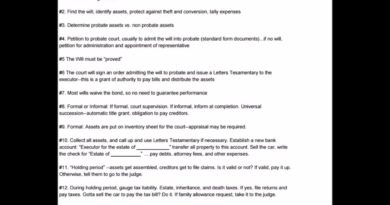Should I Use a UGMA/UTMA account or a trust to protect assets intended for my minor child?
Parents or grandparents often use a Uniform Gifts to Minors Act account (UGMA) or Uniform Transfers to Minors Act account (UTMA) to transfer assets to a child. These accounts allow minors to legally own assets. A custodian is appointed to manage the account until they reach the age of majority. The Indianapolis attorneys at 
Frank & Kraft explain the key features of UGMA and UTMA account and how they compare to a trust to help you decide the best option for your estate planning needs. The UGMA/UTMA Acts were designed to simplify the gifting of assets to minors. A UGMA allows minors to have cash, stocks and bonds. A UTMA account extends this list to include property and real estate. The custodian is responsible for managing the account and making decisions on how to invest the assets and use them in the minor’s interest. The assets are transferred to the child once the minor reaches the specified age. In Indiana, a UTMA is considered to be a UTMA if the account owner is over 21 years of age, and a UGMA is considered a UGMA if the account owner is under 18 years of age. No formal trust is required, nor does a lengthy legal procedure. The accounts offer tax benefits as well, because the income from assets in the account are taxed according to the minor’s tax rate. The loss of control when the minor reaches majority is one of the main limitations. The child can then use the assets as they please, even if their parents or other family members disagree with them. This loss of control can be problematic if the child is not yet financially responsible.UGMA and UTMA accounts can be useful for parents or grandparents who want to make relatively small gifts to minors while avoiding the complexities of a trust. These accounts allow for an easy asset transfer and can teach children about financial management. These accounts are often used to fund a child’s education or other specific goals.
Comparing UGMA/UTMA Accounts to a Trust
While UGMA and UTMA accounts are relatively simple and cost-effective, a trust offers a more flexible and comprehensive option for passing assets to a minor. A trust allows a Grantor to specify how and when assets should be used even after the child has reached adulthood. For example, a Grantor may decide that the assets should be used for the child’s education or medical expenses, with the remainder distributed in increments over time to avoid irresponsible spending.
Another major difference is that a trust allows the Grantor to choose when the child will gain full control of the assets. The trust can be set up to delay the transfer until the child reaches a certain milestone or is more mature, such as completing college or turning 30. This can provide additional protection for children who are not financially responsible. Assets in trust are usually protected from creditors. This can be an important benefit for beneficiaries who may face financial difficulties. For more information about UGMA or UTMA accounts please join us at an upcoming FREE seminar. If you would like to discuss how a UGMA account or UTMA fits into your estate planning, please contact the Indianapolis estate planning attorneys of Frank & Kraft
at
Frank & Kraft
, by calling
(317) 684-1100
, to schedule an appointment. Mr. Kraft’s primary areas of expertise are estate planning, Medicaid planning, federal, state and corporate taxation, real property and corporate law. He also has a background in accounting.
Latest Posts by Paul A. Kraft Estate Planning Attorney
(see all)






